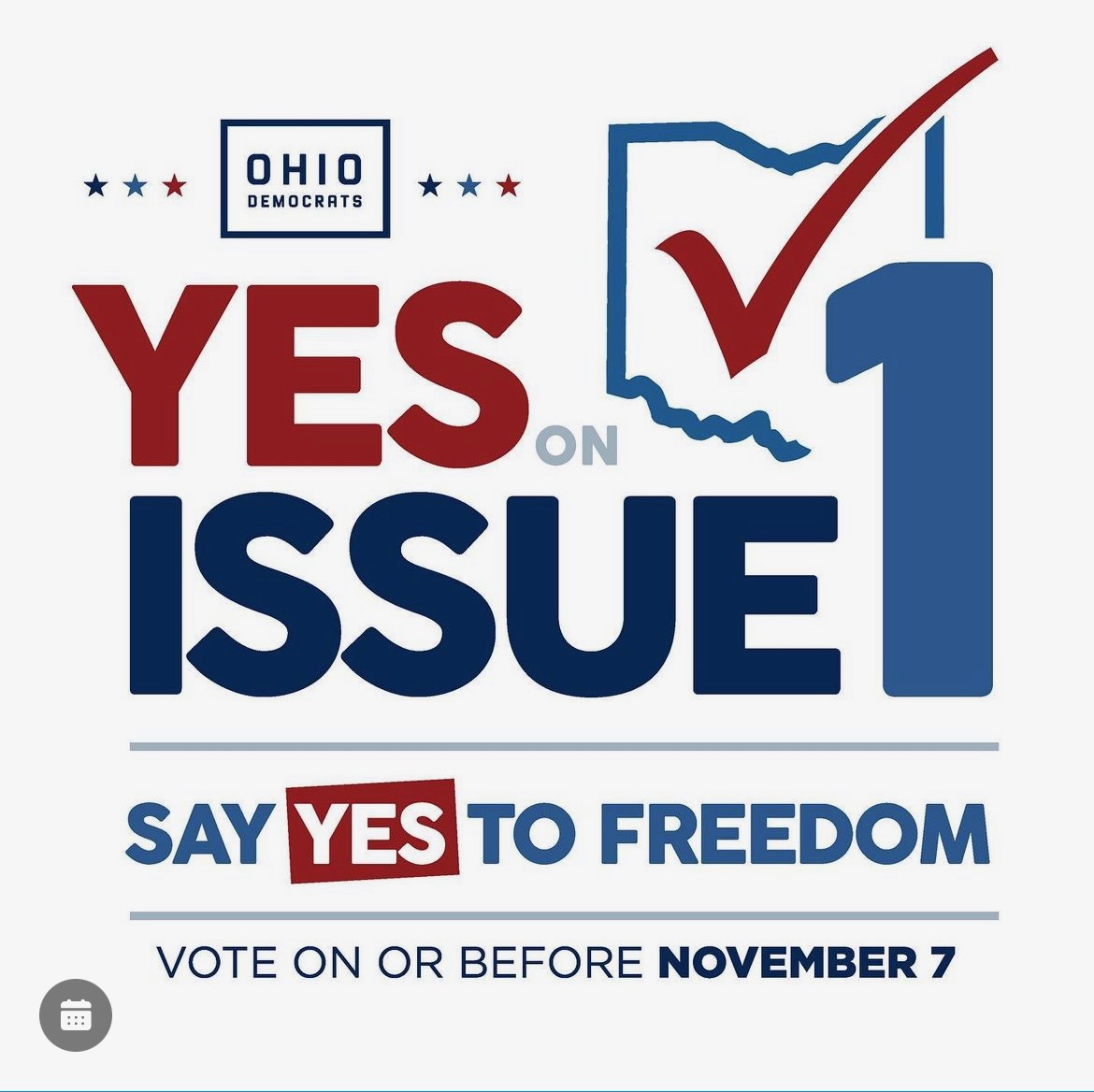As students in Liberty rise to voting age, it is imperative that these students stay informed about the latest issues and keep up to date with the next voting opportunities. After Issue 1 was voted on August 8 of this year, Ohio has announced that eligible voters will now be able to vote on two new issues: Issue 1 and 2, by November 7th.
This has posed as confusing for many, considering Ohio just held a special election in August. Many voters who cast their votes as “no” in August are being urged to cast their vote as “yes” in the next election, and vice versa for voters who voted “yes” in the last election. Issue one is now posing a choice on preventing the state from banning abortions, contraception use, miscarriage care, other reproductive decisions and will essentially protect women’s reproductive rights by voting “yes.” By voting “no,” the state will be able to preserve the current state of abortion rights, and would allow there to be a possible total abortion ban. (The Columbus Dispatch)

Voters will also be asked to vote on Issue 2, the legalization of marijuana. This issue could allow or deny the legalization of marijuana and its ability to be both medically and recreationally used. (The Columbus Dispatch)
As students begin to play their parts in the government and cast their votes, it is important that students capitalize on this new opportunity to vote.
Mr. Krosnosky, a U.S. Government and History teacher at OLHS, says, “As the older generations are dying off, and now this generation of a baby boom is taking over politically, younger generations need to express their voice as early as they possibly can.”
Though students may feel like their vote is one drop in a large sea, eventually everyone’s votes will add up and count to make an effect on the U.S. political system. But, it is important that students stay educated on these elections and votes they’re casting.
“Ballotpedia.org does a great job with putting local policies online,” Krosnosky says, “The major news networks are tough because you have to look through bias on both sides, but staying attuned to local news and talking about things with teachers is a great source of information.”
By keeping up with the political trends and information, students can easily begin to form educated political opinions and insert these opinions into the government by playing their part of voting.


